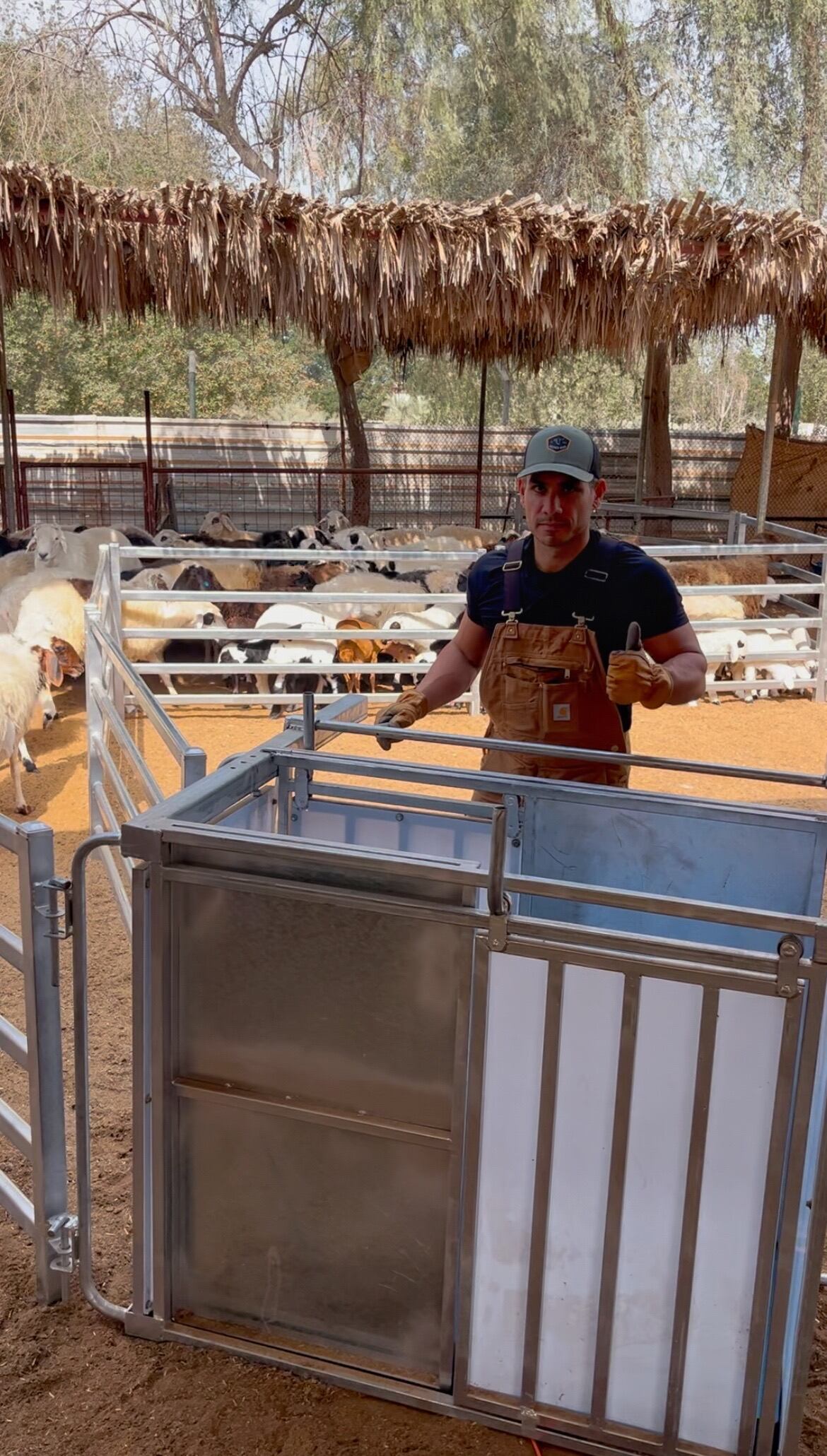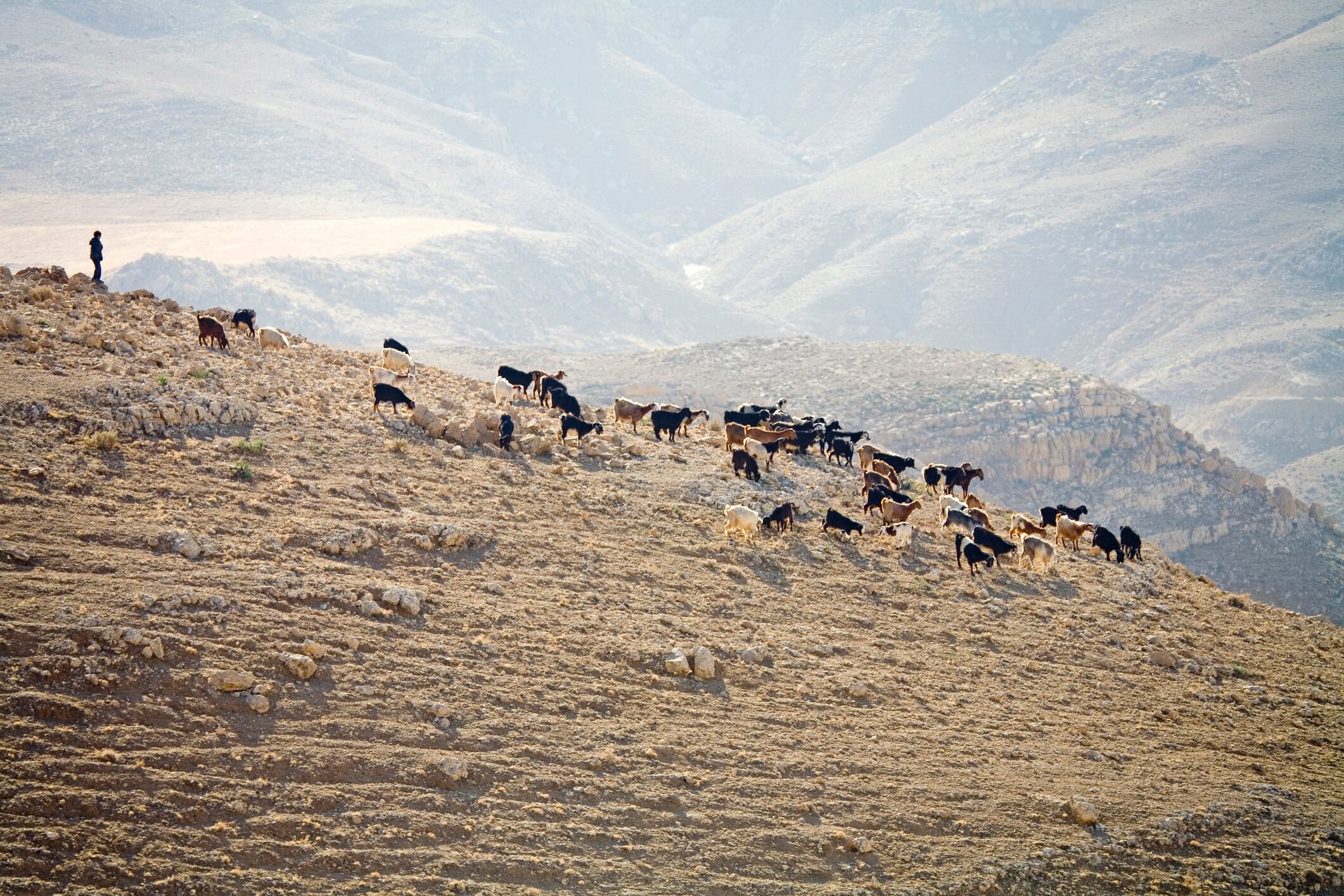With a physical presence in the UAE and Lebanon, the platform has already gained strong traction across the region, with over 20,000 animals logged on the app and more than 500 active users in nine Middle Eastern countries, including Saudi Arabia and the UAE.
The Greener Herd app is designed to help small- and medium-scale livestock producers to improve their herds’ nutrition, health, and productivity. It provides nutrition planning, health and vaccine tracking, and digital recordkeeping – aiming to give farmers insights in an easy-to-use, Arabic-first mobile platform.
The app also features a growing database of over 200 feed products, helping farmers create precise, cost-effective rations to improve feed conversion rates and reduce costs.
“Farmers across the region face high feed costs and rising pressures to be more productive,” Alexander Kappes, founder and CEO of Greener Herd, told AgTechNavigator.
“We’re helping them make data-driven decisions to optimise feed, track animal health, and increase profitability. The feedback from farmers has been overwhelmingly positive — especially from second- and third-generation ranchers looking for tools to take their operations to the next level.”
The app also introduces the region’s first livestock emissions tracking tool, helping producers understand and reduce their climate impact by improving feed efficiency and herd management.
Greener Herd’s growth has been fueled by a dynamic social media strategy, Kappes added, generating over 1.1 million organic views on TikTok and Instagram in April alone, through educational and entertaining Arabic-language content focused on livestock health, nutrition, and profitability.
The company is now in the process of raising funding to expand operations, with a focus on launching a local team in Saudi Arabia, one of the largest livestock markets in the region.
“Greener Herd isn’t just a tech product — it’s an ecosystem designed to boost rural productivity and long-term sustainability,” added Kappes.
The challenges faced by livestock farmers in Middle East
High feed costs are the biggest challenge for Middle East smallholders, reiterated Kappes. Feed often accounts for over 70% of operating expenses, and many producers lack the tools to optimise rations or reduce waste.
Poor data management is another issue. “Most rely on memory or notebooks, leading to no visibility into animal health, fertility, or productivity,” he said.
Farmers in the region also face limited access to animal health services in a region where preventative care is rare, vaccine schedules are inconsistent, mortality rates are high, and where poor nutrition and lack of performance tracking result in fewer pregnancies, lower growth rates, and reduced income.
Lack of access to financing is a further issue. “Without digital records or financial reporting, producers struggle to qualify for loans, grants, or subsidies,” Kappes said.

All the while, rising temperatures and pasture degradation are putting more pressure on herd health and feed supply. “Most apps are in English and designed for highly digitized markets - not for Arabic-speaking farmers in rural areas,” he added.
He listed the economic benefits that Greener Herd has delivered for livestock producers by helping them make data-driven decisions that directly impact productivity and profitability.
“Improved reproductive tracking helps farmers breed more efficiently, leading to higher pregnancy frequency and fewer unproductive females, resulting in up to a 34% increase in profits,” he said.
“Better breeding selection based on performance data increases the likelihood of twin births in goats and sheep, contributing to a 35% increase in profits.
“Timely vaccinations and preventive care, supported by in-app reminders, reduce mortality and disease outbreaks, delivering an estimated 5% improvement in profitability.
“Fewer dry females (non-lactating or non-pregnant animals) due to better tracking contributes to a 19% gain in profitability.”
He added: “These benefits compound over time, especially for producers managing medium to large herds.”
Affordability ‘not a major barrier’ in this segment
Greener Herd aims to deliver high value at an affordable rate. For a farm with around 400 animals, the monthly app subscription is just $100.
“Affordability is not a major barrier in this segment,” Kappes said. “Livestock producers already invest heavily in feed, with an average farm of this size spending over $12,000/month on feed alone. Our app helps ensure that every dirham spent on feed translates into more meat, milk, and healthier animals - making the subscription cost a fraction of the savings and gains it enables.”
Kappes said the company’s immediate targets are to scale to 2,500 paying subscribers within the next 6-9 months; to expand local operations in Saudi Arabia and Egypt, where demand is rising rapidly; and launch its AI-powered onboarding tools to simplify herd digitisation and drive mass adoption.
He identified aaccess to capital – needed to scale marketing and build local teams in high-potential markets – as among the company’s pressing issues.
Also key are government partnerships – crucial for large-scale farmer adoption but often move slowly – and building localized AI tools that are accurate, low-bandwidth, and easy to use by farmers with limited digital literacy.
“At this stage, our priority is to strike the right balance between rapid growth and a clear path to profitability,” he added.
“The demand is proven, and the app is delivering strong value, so our focus is on getting it into the hands of as many livestock producers as possible, while keeping unit economics healthy and cost discipline in place. We’re growing fast, but doing so with intention.”


